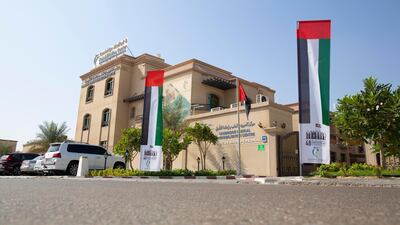TVM Capital Healthcare is raising a second growth capital fund focused on investment in the Gulf and is raising its first fund in the Asia-Pacific region as it expands its geographical footprint.
The company, which closed its first fund in Dubai 10 years ago, said the new fund “will have a strong focus on the GCC, but also Saudi [Arabia] specifically”, according to its chairman and chief executive, Helmut Schuehsler.
He declined to give a target size for the investment vehicle, or a closing date for the fund, but said it will look to “do eight to 10 deals”, with individual ticket sizes of between $20 million to $40m (Dh73.4m to Dh146.9m).
“We want to be true, strategic investors. We usually don’t invest all-in-one. So, if we say $20m to $40m, very often we make an initial investment if it’s a start-up which could be small – $5m or so – and then continue to grow over the years,” he said.
“Sometimes we will make a $30m investment and just have $10m as a reserve. It depends on what kind of physical infrastructure you need for the deal [or] if there are other people who will co-invest with you.”
TVM Capital Healthcare grew out of Munich-based TVM Capital, which was founded as a corporate ventures arm by industrial company Siemens to invest in technology companies, but which later pivoted towards life sciences investments.
The healthcare arm, set up to invest in the sector in emerging markets, opened in Dubai 10 years ago after the launch of the TVM Healthcare Mena 1 to make investments in the wider Mena region.
That fund made a total of five investments – four in the Gulf and one in Egypt. One of these, a provider of rehabilitation centres known as Provita, was sold alongside co-investors Olayan Group and Al Zarooni Emirates Investment to NMC Health in 2016 for $160.6m.
The other four – Amecath, Bourn Hall Fertility Centre, Cambridge Medical and Rehabilitation Centre and Manzil Healthcare Services – are still held by the fund. These have taken time to build, Mr Schuehsler said, because the fund has been a hands-on investor.
“In the beginning, we managed these companies ourselves because we created the concepts in our own office,” Mr Schuehsler said.
“I ran Provita, the one we sold, for one year in 2012 myself. And other people on the team also ran companies if there was a need.”
The other reason is there are not as many potential buyers in the region than in other parts of the world because the mergers and acquisitions market is not as well developed, he said.
“There [are] not a lot of organisations out there that are professional M&A acquirers. Many companies, especially in healthcare, have grown organically over many years – 20 to 30 years ... Dallah Healthcare, Sulaiman al Habib and all of these hospital groups, they all grew organically,” he said.
He envisages trade sales to regional healthcare companies as the most likely exit route for the first fund’s assets or secondary sales to other private equity funds or syndicates, which could include family offices.
For its new Gulf-focused fund, the company will look to invest in all areas of health care, except for general hospitals.
“There is already a lot of them and we don’t know what our added value is there,” Mr Schuehsler said.
This could include anything from pharmaceuticals manufacturing to medical devices, equipment or specialist models of service delivery.
“So, we don’t want to change our business model very much. It is not about raising a tonne of money, it’s about raising enough money to build companies that can grow to critical mass. From my point of view, critical mass companies are companies that have anywhere between $30m to $80m in revenues and are nicely profitable, and have 10 to 20 per cent annual growth ... maybe even 25 per cent.”
Mr Schuehsler, a former chairman of the European private equity and venture capital association, Invest Europe and a former member of the steering committee of the now-defunct Middle East Private Equity Association, says TVM Capital had initially planned to build its emerging market healthcare business in the Asia Pacific region and only started to look at the Middle East after talking to potential local investors about its US life sciences funds.
A decade later, alongside the second Middle East fund, it is also looking to raise money for its first Asia fund after opening an office in Singapore last year.
“Going forward, our strategy is to have two legs to our business. One is the Middle Eastern and [the other] is the South-East Asian one,” he said.
“We opened our office in Singapore [at] the beginning of last year, we hired an investment team, we created big infrastructure in terms of [a] senior adviser network and relationships in all of the major countries in South-East Asia and we are also currently in the market talking to investors to check who could come in as a lead investor, as a cornerstone investor for this.”
Only two private equity-backed buyout deals were completed in the first half of 2020, compared to 12 for the whole of last year, according to data provided to The National by Preqin, a company that provides data on alternative asset classes.
The biggest deal during the period was the $100m buy-out of IVI Clinics Middle East by Gulf Capital in January.


